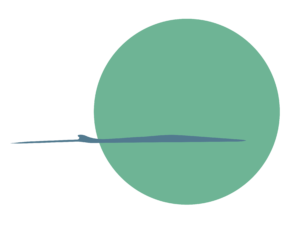Intelligence is based on how efficient a species became at doing the things they need to survive.
Why Mathematical Ecology
Few years ago Dr Stefano Focardi, a colleague of mine and a biologist, invited me to work with him about mathematical modelling of trophic webs, I would be the equation guy. I enjoyed very much that job, and since then I have gone through quite a bit of models where dynamical variables couple, compete, cooperate, chase and eat each other, mimicking what living species do in ecosystems. This is my story with Mathematical Ecology (ME) in a nutshell, and it’s not over yet. Most of all, I am intrigued by the possibility of excogitating new mathematical forms to describe behaviours not yet modelled.
My Vision
Trophic webs, ecosystems are essentially physical systems undergoing external forcing (energy supply), equipped with a rich internal dynamics and expelling degraded energy. This renders them suitable to the analysis of non-equilibrium dynamics and thermodynamics. If a non-equilibrium thermodynamics vision of ecosystems were developed, one would be able to represent the functioning of it as a highly complex effect of the flux of energy entering and exiting the system, and account for the entropy production. This would allow for interesting calculations, e.g. how biodiversity and biomass abundance can vary depending on the energy from outside, and how it is supplied. The abundance and diversity of species must depend on the total energy input into the ecosystem, and on the nonlinear relationships among populations, allowing for complicated patterns in the trophic levels to arise and last: my vision is that understanding the interplay between energy input and dissipation dynamics in ecology will lead to an important breakthrough in understanding evolution and co-evolution of environments and species.
My Work
My work in ME consists of “model engineering”, i.e. producing models of particular ecosystems or biological functions. In the future, I plan to study the reconciliation of such modelling with the fundamental structures of dynamics and thermodynamics (see below).
My interests, and work, in ME are essentially:
- Land and water trophic webs studied as coupled ODEs;
- Predation, competition and cooperation among big vertebrates;
- Models of algal development and inter-algal competition.
What’s Next
These are my future research lines in Mathematical Ecology:
